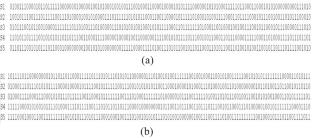Simulation of QTRNG on IBM’s Q Experience Using Rotation and Phase Quantum Gates
Abstract
True random numbers are crucial in many applications ranging from stochastic simulations to many other applications, especially cryptography. The quest for true randomness is, in general, considered to be impossible with only classical means. This insight enables the construction of various proposals for producing a good random number generator in realistic quantum scenarios. We presented a new fast 24 qubits quantum true random number generator (QTRNG) based on rotation and phase quantum gates on IBM’s cloud platform. It is a provable true random number since it is based on the quantum process and experimented with through QISKIT. The raw output of the generator reveals the foundational unpredictability of quantum mechanics inherent nature, which is different from classical physics. The achievable eminence of the numbers generated from a practical carrying out can differ from the theoretically promising solution. The proposed Quantum True Random Number Generation is accomplished through IBM quantum lab, and its architecture results also passed National Institute of Standards and Technology (NIST) statistical tests 800-90B and 800-22. This method is relatively efficient since it can be implemented locally on our devices. The offered methodology 224 bitstream data has higher certification randomness. The quality of the generated random bitstreams is investigated through restart analysis and autocorrelation analysis. The resulting output passes the NIST standard statistical test with a min-entropy value of 0.000712.


 求助内容:
求助内容: 应助结果提醒方式:
应助结果提醒方式:


